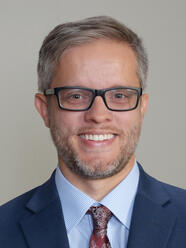At Central State University, the Department of Humanities plays a pivotal role in advancing our mission of fostering academic excellence and community engagement. We are dedicated to nurturing critical and independent thinkers through our diverse Bachelor of Arts, minor programs, and comprehensive General Education courses. Our commitment to both students and faculty is evident in the emphasis we place on their creative and professional development.
Our department proudly offers bachelor's degrees in English with concentrations in Literature and Pre-Law and Humanities — Interdisciplinary Studies. In addition, we provide a range of minors, including History, Pre-Law, Philosophy and Religion, Africana Studies, Literature, Environmental Humanities, and Gender and Sexuality Studies, each designed to empower students with the knowledge and skills to make a meaningful impact in their chosen fields.
Unlock your future with a Humanities degree
Earning a four-year degree in the Humanities equips students with the essential skills and abilities that are highly valued by employers across a wide range of industries, as well as by graduate and professional programs. The career possibilities for those who major in the Humanities are diverse, with popular pathways including management and marketing, healthcare, and even careers at the forefront of technological innovation.
Employers consistently seek out the skills that are honed through Humanities courses. In fact, surveys reveal that written communication skills top the list of attributes that employers prioritize in job candidates, with 80% of employers requiring proof of these skills before making a hiring decision. Other sought-after attributes include problem-solving, teamwork, analytical skills, verbal communication, leadership, attention to detail, and adaptability — all of which our curriculum is designed to develop.
Humanities majors thrive in the business world. Data shows that 15% of Humanities graduates move into management roles, 14% work in office and administrative positions, 13% excel in sales, and 10% find success in business and finance. In fact, managers in marketing, advertising, and public relations who studied liberal arts often earn significantly more than their peers with specialized degrees.
Leading tech companies like Apple, Microsoft, Facebook, and Google recognize the value of a well-rounded education that includes a strong foundation in the Humanities. Take Bess Yount, a Stanford graduate with degrees in communication and sociology, who is now a marketing manager at Facebook. Her success story underscores the demand for professionals who bring a personal touch to the rapidly evolving tech industry, where skills like critical thinking, empathy, and effective communication are increasingly prized.
Google’s own research supports this trend. Analyzing data on hiring, firing, and promotions since 1998, Google found that the most important qualities in its top employees are not STEM (Science, Technology, Engineering, and Mathematics) expertise, but rather soft skills such as coaching, communication, empathy, critical thinking, and the ability to connect complex ideas. As a result, Google has shifted its hiring practices to include more Humanities majors and artists, recognizing the unique contributions they bring to the tech world.
The medical field also places a high value on applicants with backgrounds in the liberal arts and Humanities. Medical schools have long advocated for the inclusion of Humanities in pre-med education, and recent data from the American Association of Medical Colleges shows that Humanities majors have the highest acceptance rates into medical school — outpacing even those who major in biological sciences, math, and physical sciences.
A 2017 survey of over 700 medical students found that those with greater exposure to the Humanities scored higher on measures of empathy, wisdom, tolerance of ambiguity, resourcefulness, and emotional intelligence, and showed fewer signs of burnout. These findings underscore the importance of a Humanities education in preparing students not only to be competitive medical school applicants but also to become compassionate and effective medical professionals.
At Central State University, our commitment to fostering these essential skills ensures that our Humanities graduates are well-prepared to excel in a wide array of careers and to make meaningful contributions to society.
Bachelor of Arts programs
-
The English program provides a strong foundation in the study of the English language and literatures and offers the B.A. in English Literature or Pre-law focus, a Minor in English, and a Minor in English Creative Writing.
-
The B.A. in English Pre-Law track requires additional coursework in Business, Communication, History, Philosophy, Psychology, and Sociology.
-
The Humanities program offers the B.A. and Minor in History, with emphases on American, African American, Asian, Middle East, Islamic, and global histories, and contributes courses to the Minor in African Studies. Students develop the following skill sets: critical thinking; multi-cultural and global perspectives; and application of historical and other social scientific research methods.
-
The Bachelor of Arts in Humanities — Interdisciplinary Studies prepares students for a wide range of careers by fostering the adaptability, critical thinking, creativity, and communication skills necessary for personal and professional success in the 21st century.
Minors and certificates
-
The study of English literature helps students develop creative thinking, effective communication, critical reading, analysis, and research skills, all of which are highly sought after by employers. We encourage students from every major to add a minor in English Literature in order to better develop these skills while adding a crucial line to their resume.
-
The Philosophy & Religion program offers a minor in Philosophy & Religion and supports the university’s general education curriculum with introductory courses in philosophy, religion, ethics, and critical thinking. The program also offers upper-level courses that support a range of major and minor degree programs across the university. The program has special strengths in social, political, and moral philosophy, and its pluralistic curriculum offers students the opportunity to study thinkers and texts from diverse historical and geographical intellectual traditions. Analytical thinking, analytical writing, and creativity are the core skills students develop when taking courses in the Philosophy & Religion program. Students learn practical ways of applying philosophy in their majors, their professions, and their everyday lives.
-
Minor in Africana Studies and unveil the vibrant tapestry of Africa and its diaspora with our captivating Minor in African Studies! Immerse yourself in a dynamic 19-21 credit journey that begins with the fascinating AFS 1200 and IDS 2100 courses. Unravel the rich arts and literature of the African Diaspora through two engrossing courses, while another pair delves into the enthralling history and philosophy of the diaspora. Expand your horizons with at least one course centered on Africa or non-U.S. African Diaspora regions like South/Central America and the Caribbean. Customize your learning experience further by selecting from a curated list of relevant university courses, all in close consultation with your advisor. Don't miss this chance to unlock the secrets of Africa and its global connections - enroll now!

